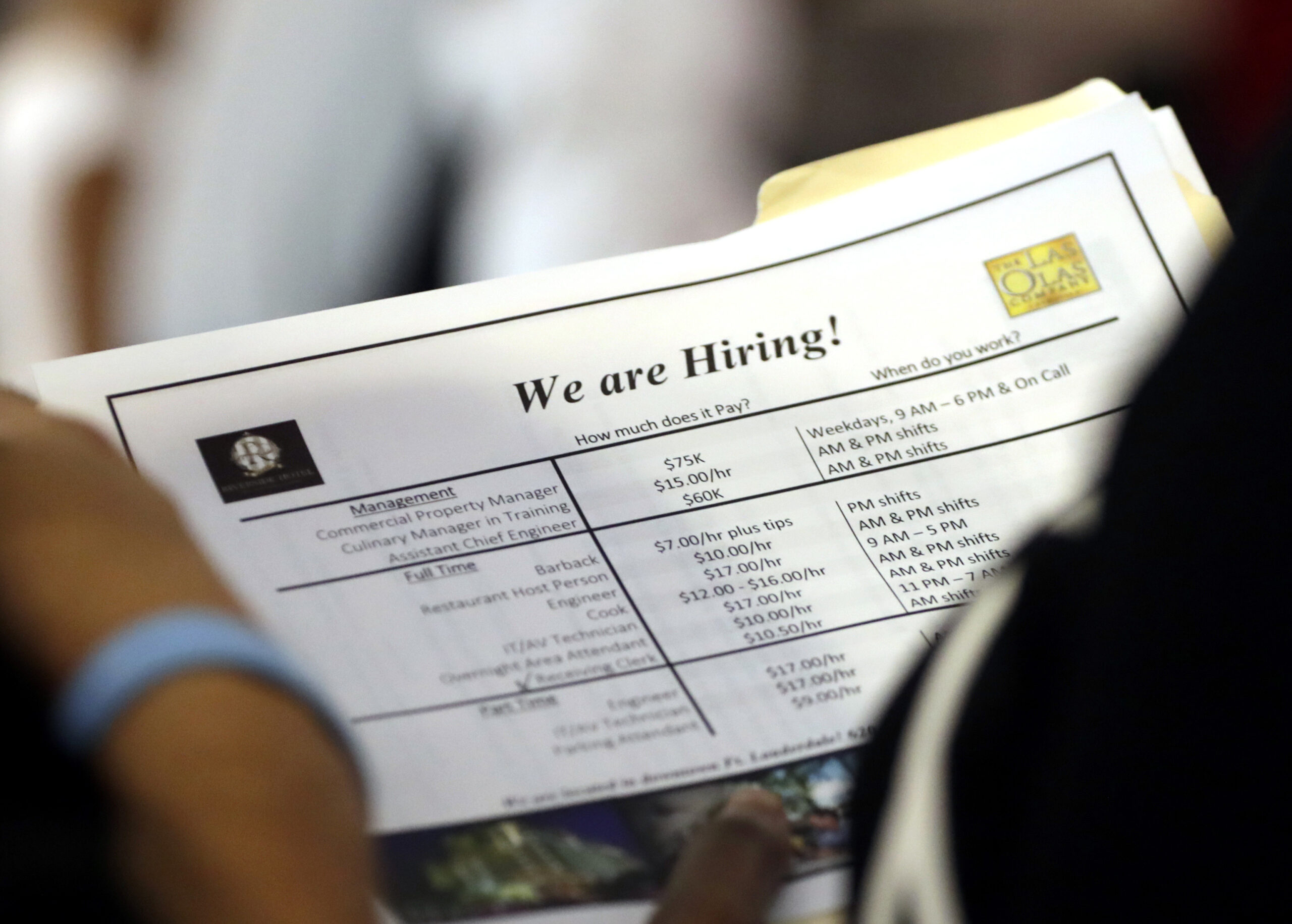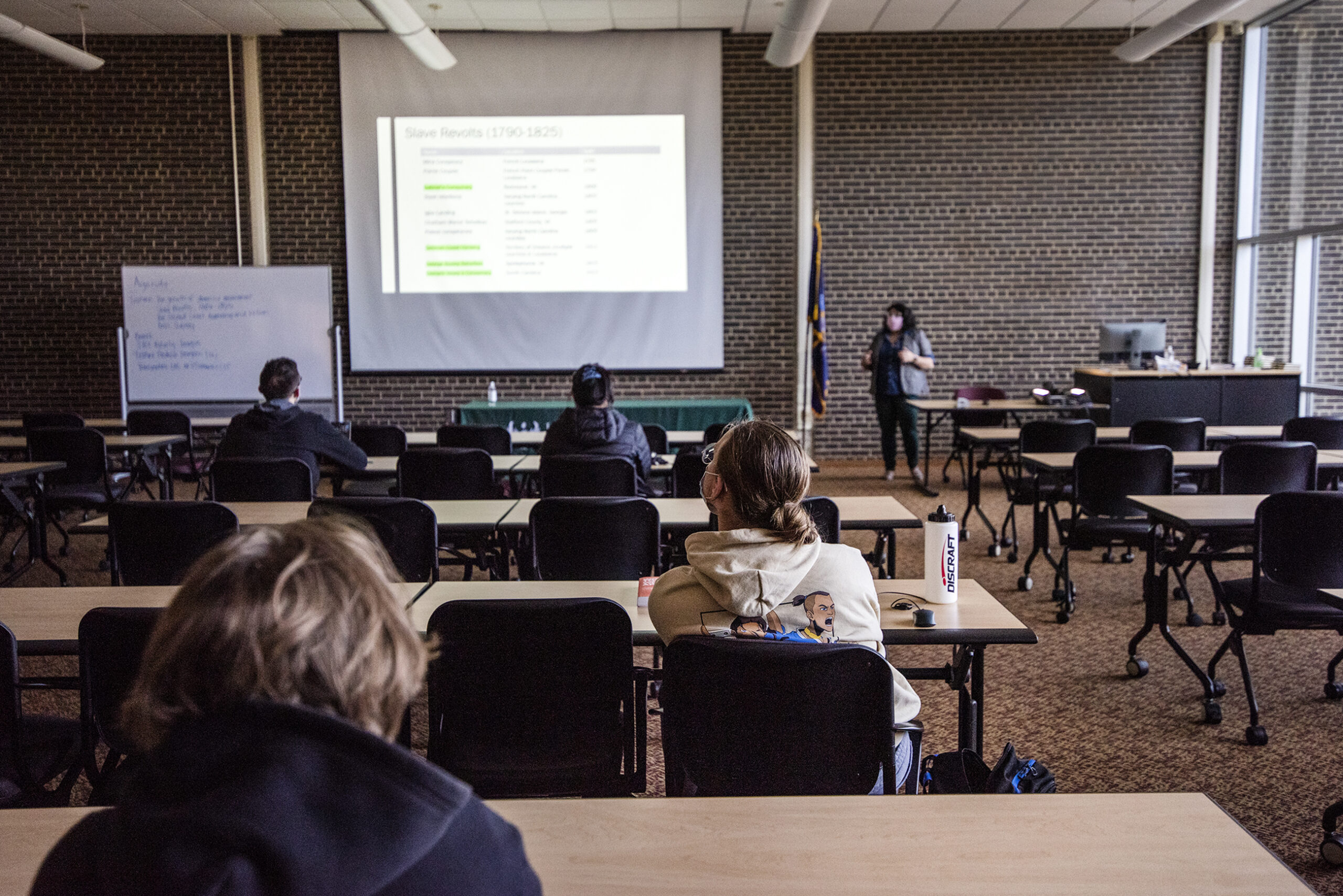Monique Valcour likes to think of careers as lifelong, self-designed experiments.
But the standard formula of job hunting, networking, competing and seeking promotions and raises may suddenly feel less reliable in the midst of a pandemic and recession.
The explosion of job losses, unmet unemployment claims and shuttered businesses can make it an anxiety-provoking time for employees, especially those just launching their careers, said Valcour — a career coach, management professor and contributor to Harvard Business Review.
Stay informed on the latest news
Sign up for WPR’s email newsletter.
But Valcour said there are ways to make sure people are adding the right ingredients together when looking for a new job, or improving their current one.
Try a multi-pronged approach
COVID-19’s impact on finances, the economy, education and future plans has been deep.
Millions across the U.S. are out of work. Unemployment programs, ill-equipped to handle the influx of cases, are overtaxed and slow to make payments. Many students’ plans for the near future have been completely upended, with internships canceled and job offers rescinded. Many others aren’t clear about whether school will resume in person.
Valcour said when people are at these transition points in their lives — whether that’s having just graduated from college, switched to a new job, or left an old job — it feels like the next step they take will be the “pivot point of your entire career.”
But that’s not true, she said. Careers are full of all sorts of transitions.
If you find yourself in this position, take a breath and reassess your situation. Relaunch your job search and consider other options that you could follow up on. Continue to reach out to potential employers, do informational interviews and work through contacts you have.
One approach you can take is talking to people who have jobs that you think are interesting. You can interview them about the work they do, which will help you learn which direction to take.
Move away from the widest part of the funnel
When you apply to a job and submit your cover letter and resume online, you’re joining a bunch of other people that are getting funneled through.
“Anything you can do to move away from the widest part of that funnel to have a warmer introduction to a potential job is to your advantage,” Valcour said.
It’s still worth submitting your resume and cover letter, but Valcour said that approach has a pretty low success rate because the number of applicants is so high.
Still, you can move farther down the funnel by networking with people in the industry. It’s probably going to be a bit uncomfortable, Valcour said, describing it as feeling almost “sleazy” to reach out to someone on behalf of yourself.
But it helps if you approach those calls, emails or social media messages with the intention of building a relationship, which you can do by informally interviewing them and asking them questions about how they got where they are, or the advice they have for someone looking to get into the industry.
“I find that most people are fairly receptive to having a conservation with somebody that’s on that topic — that a person wants to know about you, a little bit about your pathway, about what kind of advice you’d have,” she said. “And it’s not a person showing up saying, ‘Please, please I need a job.’”
Follow up after an interview
If you’ve already had an interview but haven’t heard anything from the employer, it’s best to reach out after about a week and ask for a progress update. Having an interview gives you an opening to make those connections to reiterate your interest in the job, state your appreciation for having interviewed and ask about the current status of the job.
It’s good practice to ask during the interview when you can expect to hear back from the employer. If the date they give you has passed, it’s appropriate to email the person with whom you’ve been in contact. If you still haven’t heard back after another week has passed, try calling.
When you reconnect with your interviewer, it can help make the situation more comfortable by sharing new information with them based on a question they asked — for example, let them know if you started a new project or learned new skills in the interim.
Get that raise
If you are employed and believe you’re ready for a raise, it can be difficult to ask when you know that budgets are tight.
But Valcour said that any time you’re contributing to your employer, you’re adding value. And if it’s been a long time since your last promotion, now is a good time to approach them.
“I would advise people to avoid framing this as a very binary choice on the employer’s side, that either you give me a raise or I’m offended,” she said, noting there are myriad ways for employees to be rewarded for their work, like using more of their skills and participating in activities they enjoy more.
Think about the value that you bring to work and consider keeping track of your objective achievements each week. That might include projects you’ve finished or positive feedback you’ve received.
“The key thing is that you want to base your discussion with your supervisor in terms of positivity, in terms of your engagement and your value,” Valcour said. “The more that you are aware of your value and how you contribute, the more compellingly you can make that case.”
Watch the trends
Instead of taking a more traditional route of getting a job through an internship or entry-level opening, Valcour said she expects to see more people entering the job market with side gigs, project-based work and through connections.
As the recession starts to ease, Valcour said that on a macro scale, she expects to see employment in the form of contracts or nonstandard positions. Employers can reduce risks to their own businesses that way, but it does place some burdens on the employees.
For example, the jobs might come without benefits and they’re not as stable as other jobs. But it is a way for employees to gain access to work, and it’s also a way for them to begin experimenting with jobs and skills that they think they might be interested in pursuing.
Wisconsin Public Radio, © Copyright 2024, Board of Regents of the University of Wisconsin System and Wisconsin Educational Communications Board.






